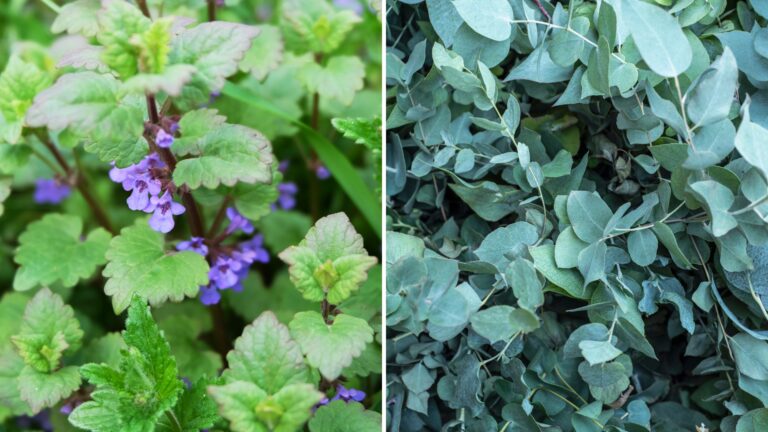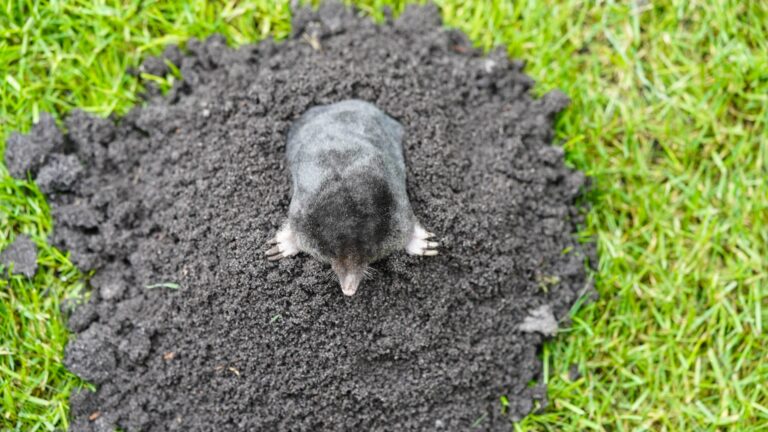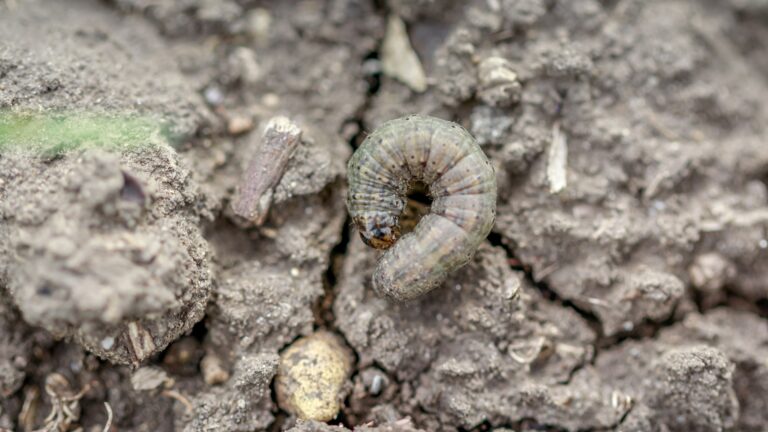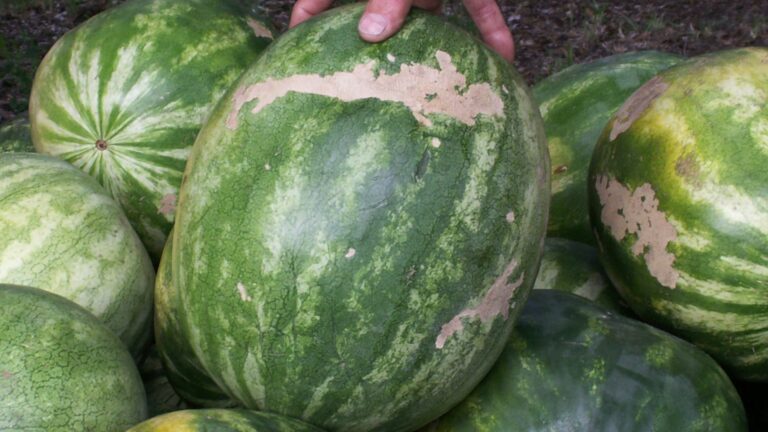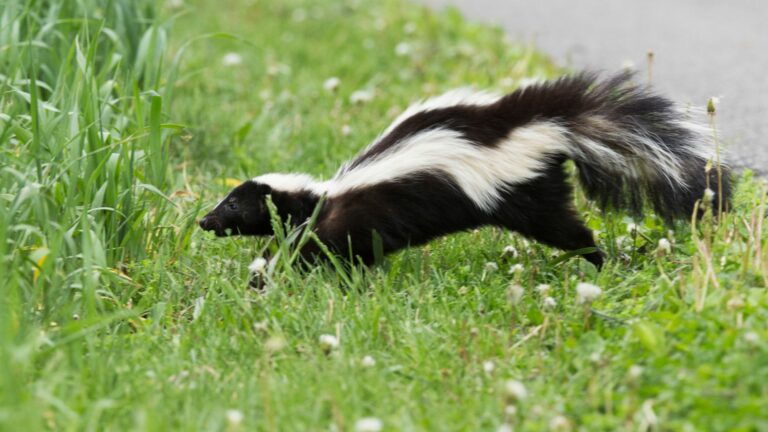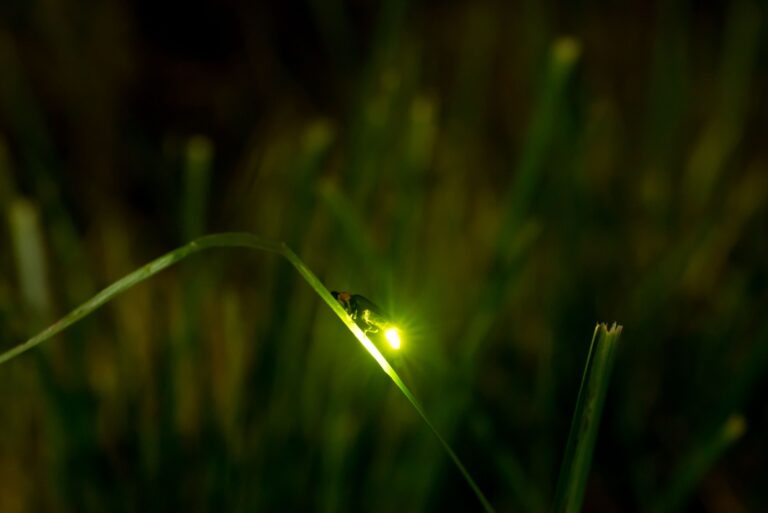11 Plants That Keep Grubs Away From Michigan Lawns
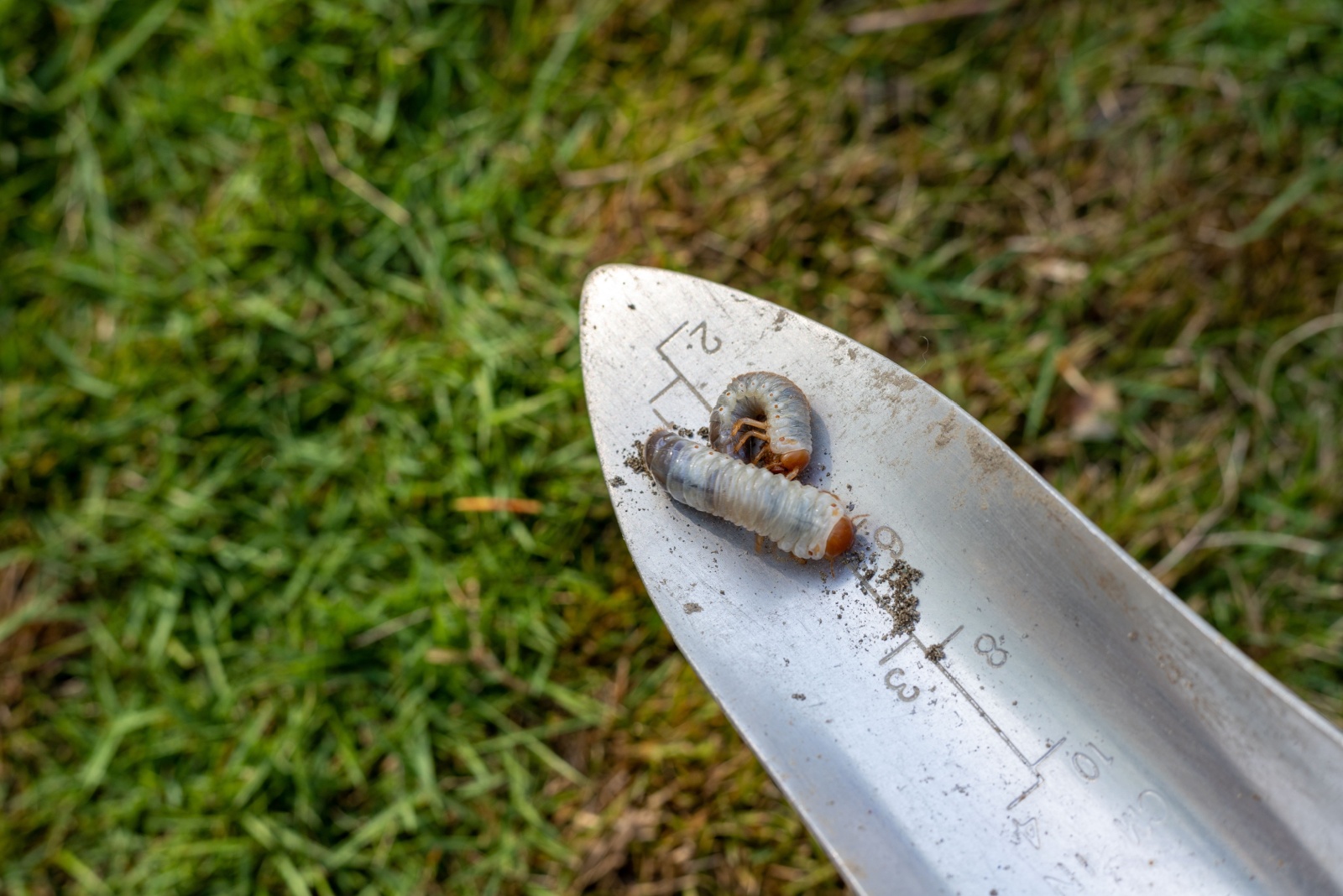
Grubs can turn your beautiful Michigan lawn into a patchy mess faster than you can say ‘beetle larvae.’ These hungry underground pests feast on grass roots, causing serious damage that’s both unsightly and expensive to fix.
Luckily, Mother Nature offers some smart solutions through plants that naturally repel or deter these lawn-destroying creatures.
1. Garlic: The Potent Protector
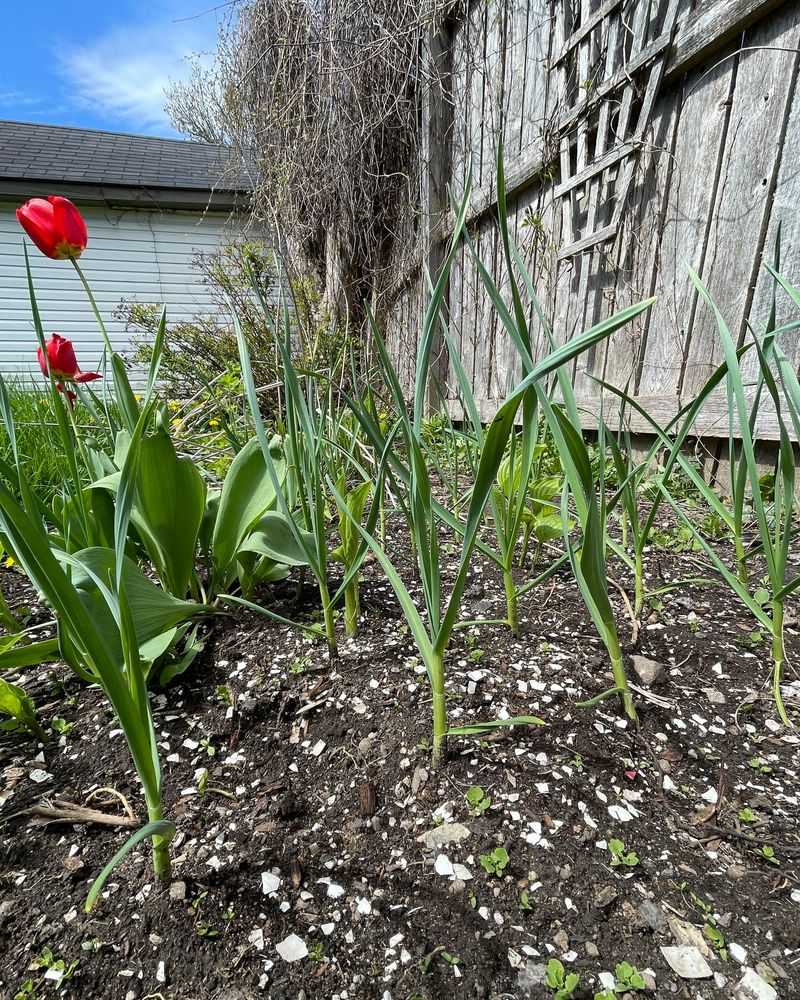
Garlic’s strong sulfur compounds make it a natural grub repellent that works wonders for Michigan lawns. The intense aroma confuses and deters adult beetles from laying eggs that turn into destructive grubs.
Plant garlic cloves in fall for spring growth, spacing them around the perimeter of your lawn. As an added bonus, you’ll have fresh garlic for cooking while your lawn stays grub-free!
2. Marigolds: Colorful Grub Guards
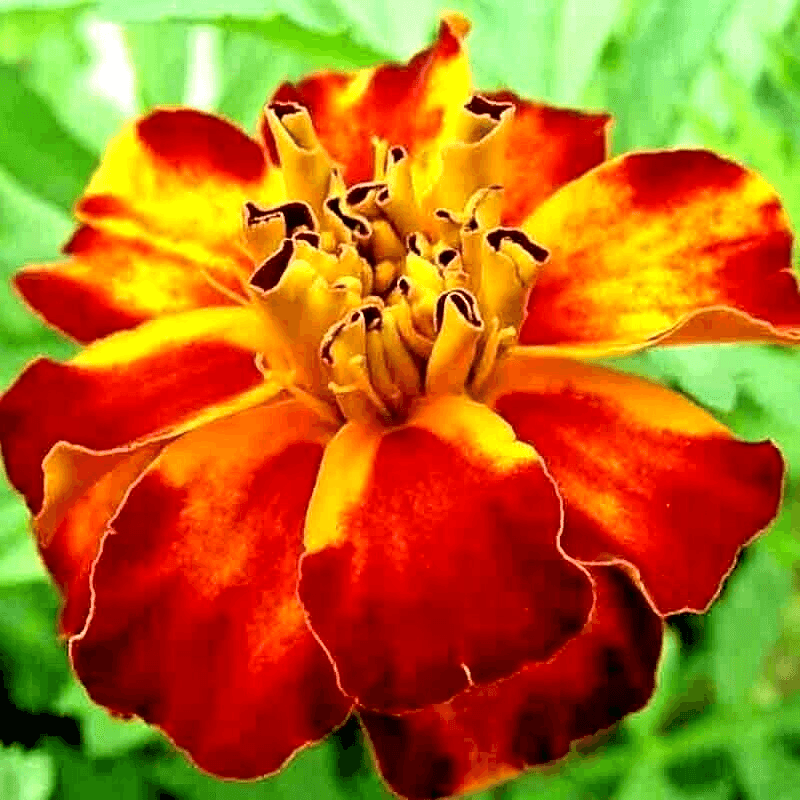
Marigolds release a substance called alpha-terthienyl from their roots that’s toxic to many soil-dwelling pests, including grubs. Their bright orange and yellow blooms add cheerful color while working underground to protect your Michigan lawn.
Border your grass with these hardy annuals for a double-duty defense system. Many Michigan gardeners swear by marigolds as a natural pest management solution that thrives in our summer conditions.
3. Geraniums: Beautiful Beetle Blockers
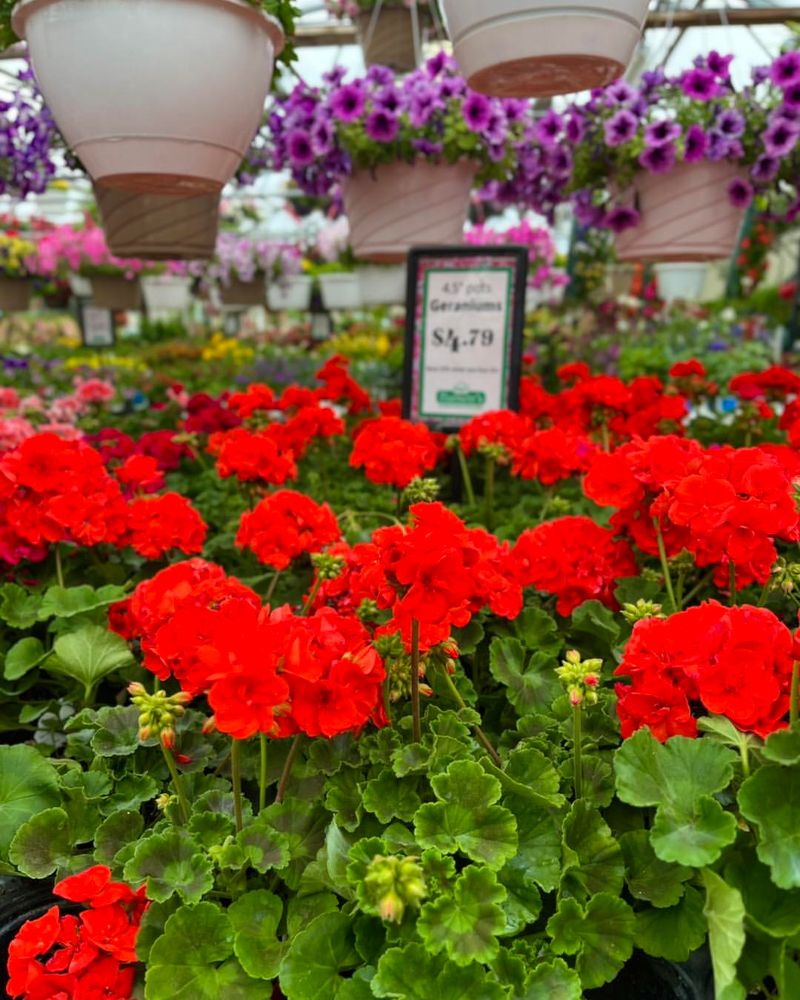
Scented geraniums contain natural compounds that repel Japanese beetles – the adult form of the most common lawn grubs in Michigan. Their lovely flowers and distinctive aroma create a barrier that keeps egg-laying beetles away from your precious turf.
Plant them in containers around your yard or directly in garden beds bordering grass areas. Michigan summers provide perfect conditions for these versatile plants to thrive while they stand guard over your lawn.
4. Nematode-Friendly Plants: Microscopic Allies
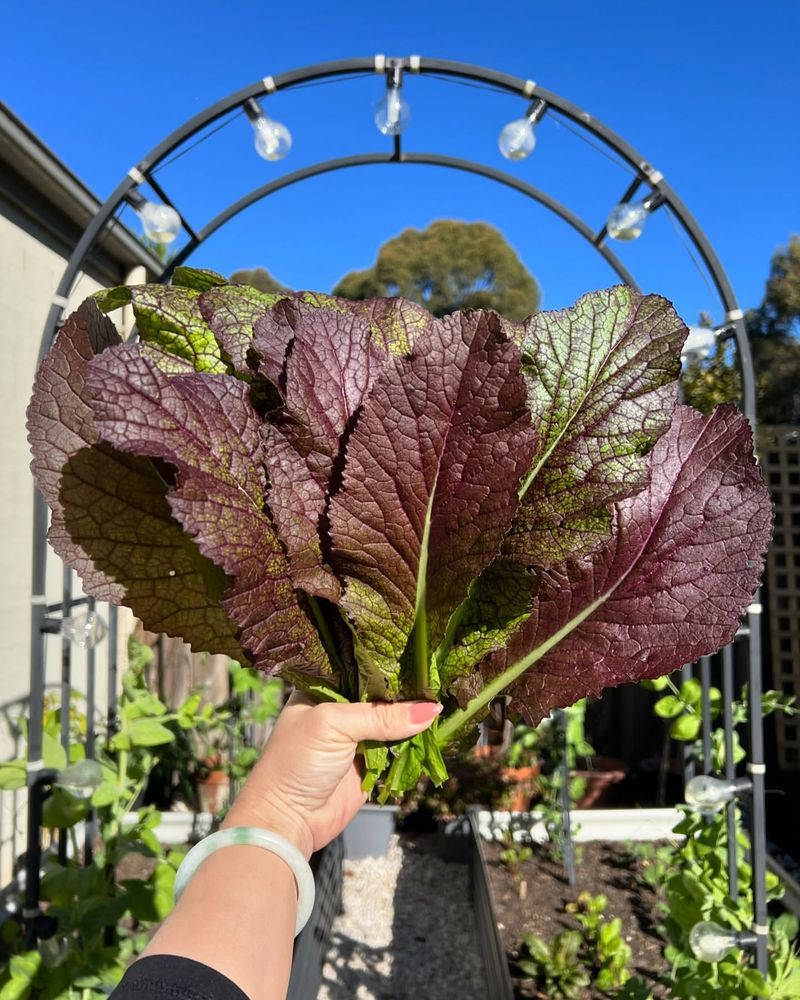
Certain plants like mustard greens and rye grass actually attract beneficial nematodes – microscopic worms that feast on grubs but leave your grass alone. These helpful creatures become your invisible lawn guardians.
Incorporating these plants in border areas creates natural nematode reservoirs. The beneficial nematodes multiply and spread throughout your soil, hunting down grubs before they can damage your Michigan lawn’s root system.
5. Chrysanthemums: Fall’s Grub Fighters
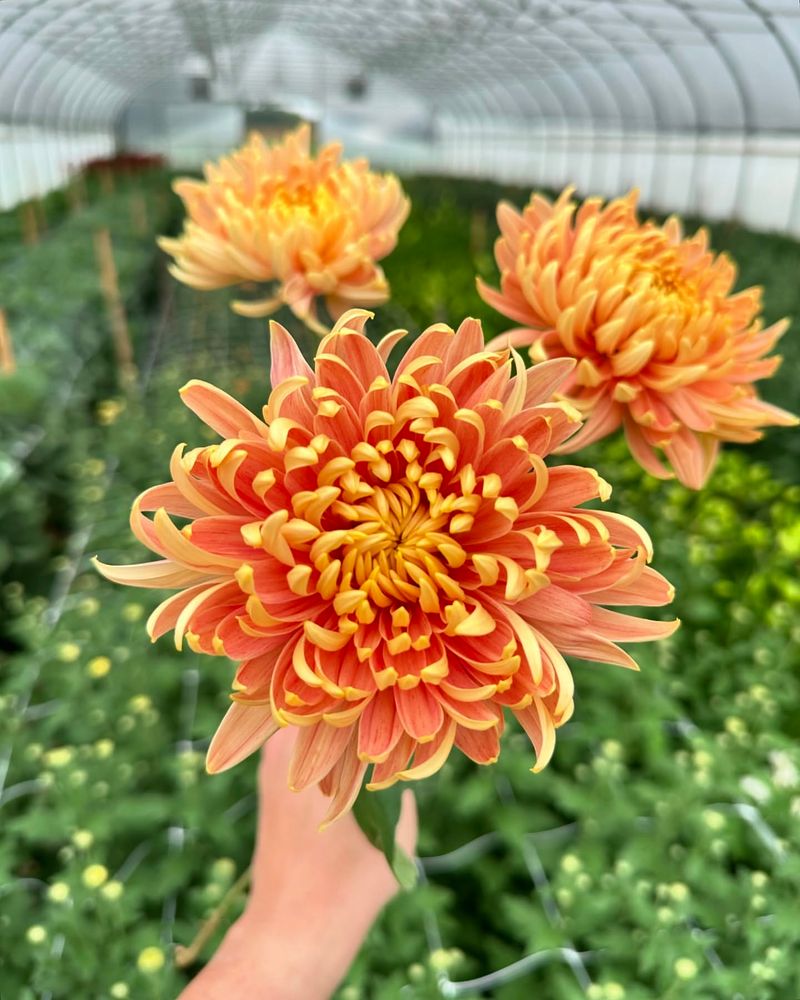
Chrysanthemums contain pyrethrin, a natural insecticide that disrupts grubs’ nervous systems. Fall-blooming mums provide perfect timing for grub control since they’re active just when adult beetles are laying eggs in Michigan lawns.
Hardy varieties survive Michigan winters and return year after year. Plant them in groups for maximum impact – their root systems release compounds into the soil that create a protective zone extending several feet into your lawn.
6. Mint: The Aromatic Defender
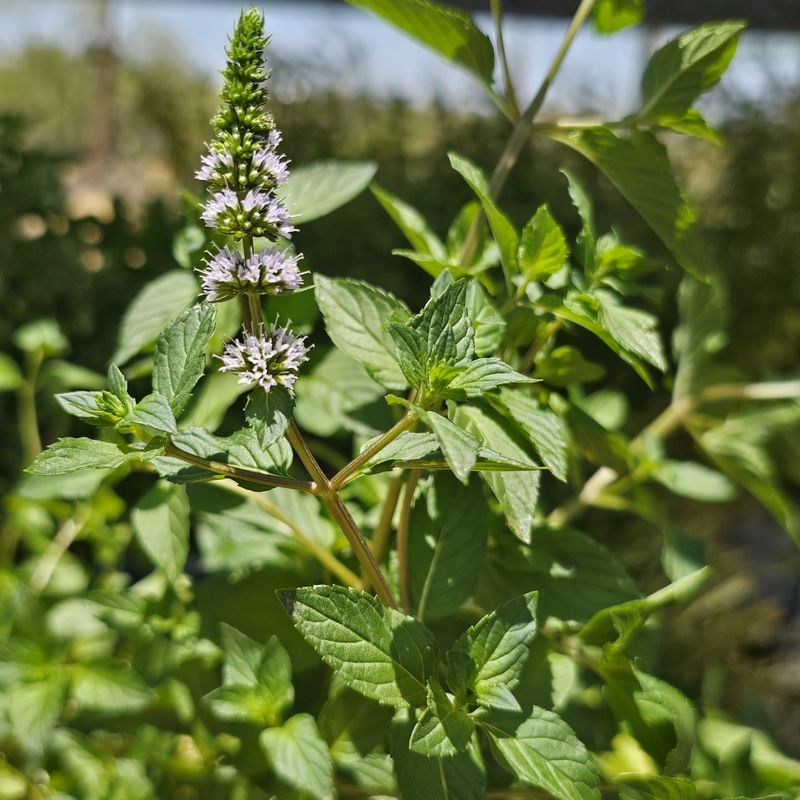
Mint’s strong scent confuses adult beetles, preventing them from finding suitable egg-laying spots in your lawn. The essential oils in mint leaves act as a natural deterrent that keeps grub populations down.
Caution: mint spreads aggressively! Plant it in contained areas or sunken pots around your lawn’s edge. Michigan’s climate allows mint to thrive from spring through fall, providing continuous protection during peak grub seasons.
7. Catnip: Not Just for Felines
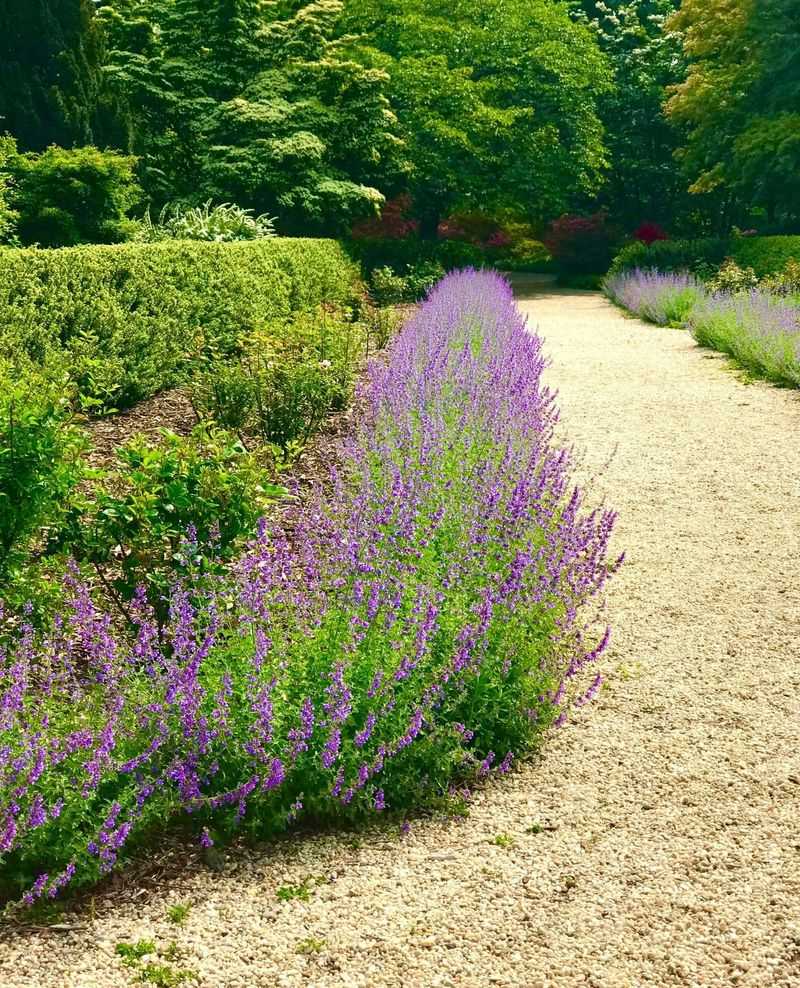
Catnip contains nepetalactone, a compound that repels many insects including the beetles that produce lawn grubs. While your cat might go crazy for it, these same compounds send beetles looking elsewhere to lay their eggs.
This hardy perennial thrives in Michigan’s climate with minimal care. Strategic planting around lawn perimeters creates an invisible barrier that dramatically reduces grub damage while adding texture to your landscape.
8. Tansy: The Traditional Grub Repellent
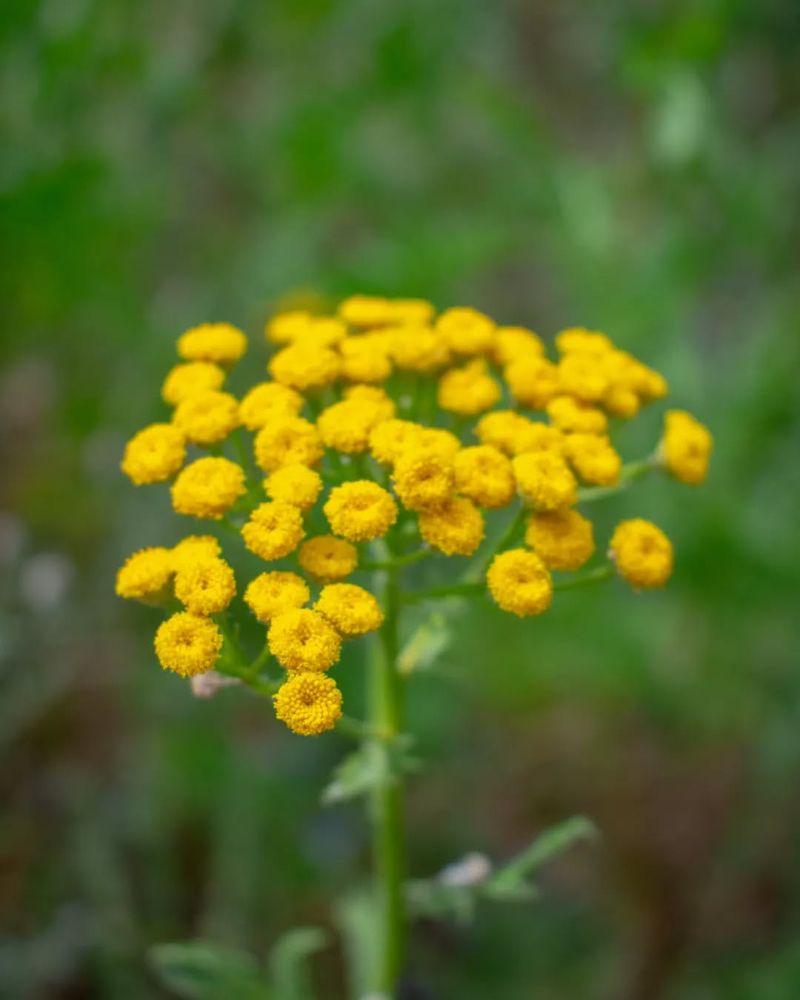
Tansy has been used for centuries to repel insects, including the beetles that produce lawn-destroying grubs. Its feathery, fern-like foliage and button-shaped yellow flowers make an attractive addition while providing serious pest protection.
A few strategically placed tansy plants can protect large sections of your Michigan lawn. The plant contains natural compounds that mask the scents beetles use to find suitable egg-laying sites in your grass.
9. Rue: The Historical Pest Deterrent
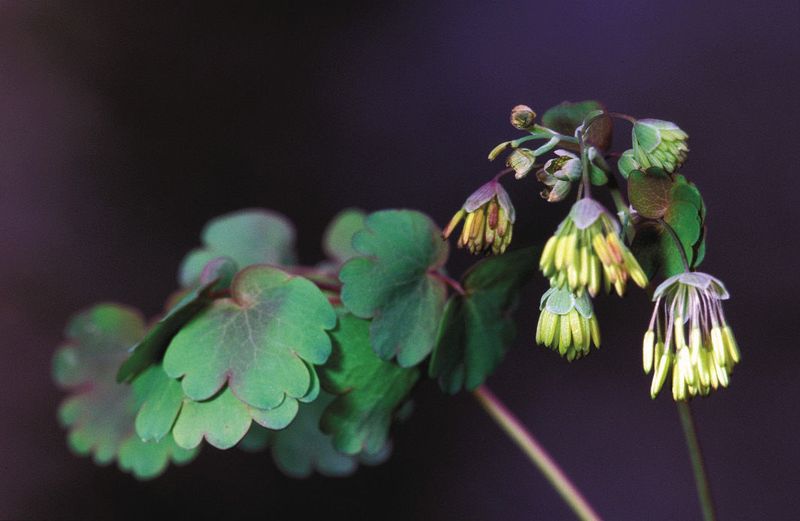
Rue’s distinctive blue-green foliage contains powerful natural oils that repel many insects, including the beetles responsible for lawn grubs. This traditional herb creates an aromatic barrier that keeps egg-laying beetles away from your grass.
Michigan’s climate suits rue perfectly. Plant it in sunny spots around your lawn where beetles typically enter your property. Be aware that some people experience skin irritation when touching rue, so wear gloves when handling.
10. Thyme: The Low-Growing Guardian
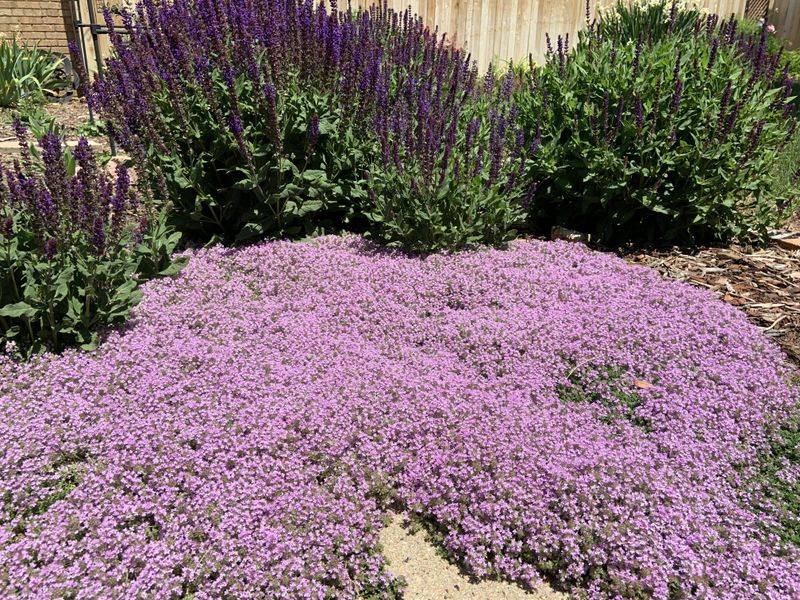
Thyme’s aromatic oils naturally repel the beetles that produce lawn grubs. This low-growing herb creates a beautiful ground cover that can be planted right at lawn edges where grass meets garden beds.
Creeping varieties spread to form dense mats that smell wonderful when walked upon. Michigan’s climate allows thyme to establish well with minimal care, creating a living barrier that beetles avoid while adding visual interest to your landscape.
11. Native Prairie Plants: Michigan’s Natural Solution
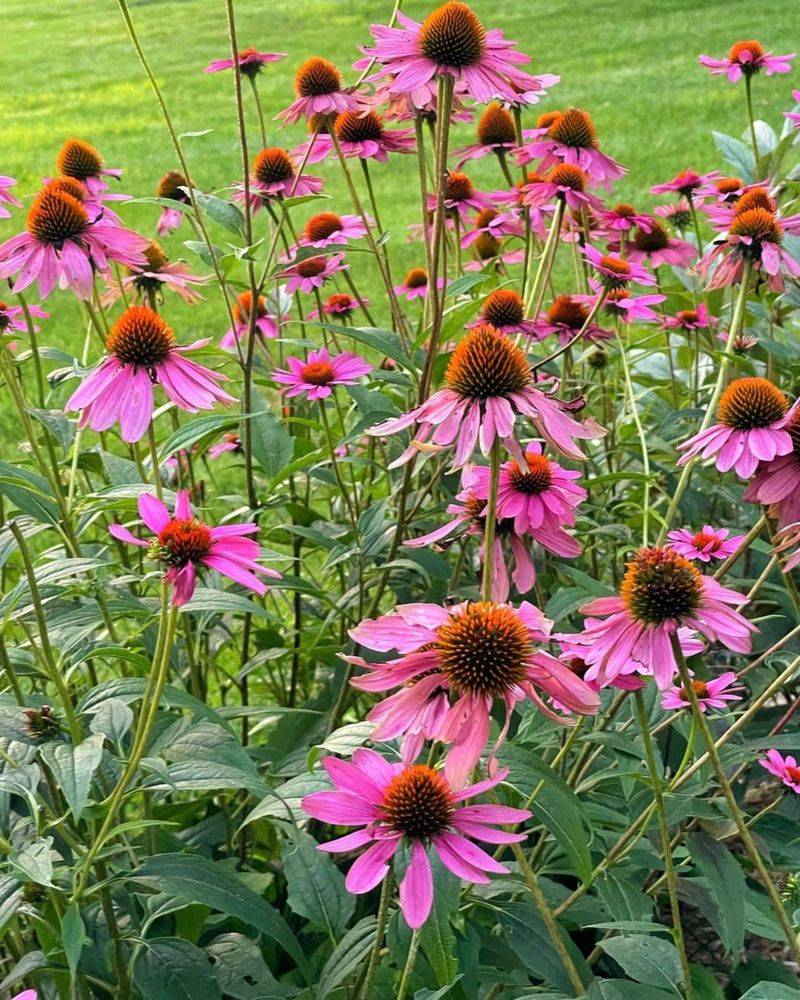
Native prairie plants like coneflowers, black-eyed Susans, and little bluestem grass attract beneficial insects that prey on grubs and beetles. These Michigan natives evolved alongside local pests, developing natural defense systems perfect for our soils.
Creating small prairie gardens near lawn areas establishes ecological balance. The deep root systems of these plants also improve soil health, making conditions less favorable for grubs while supporting the insects that naturally control their populations.

